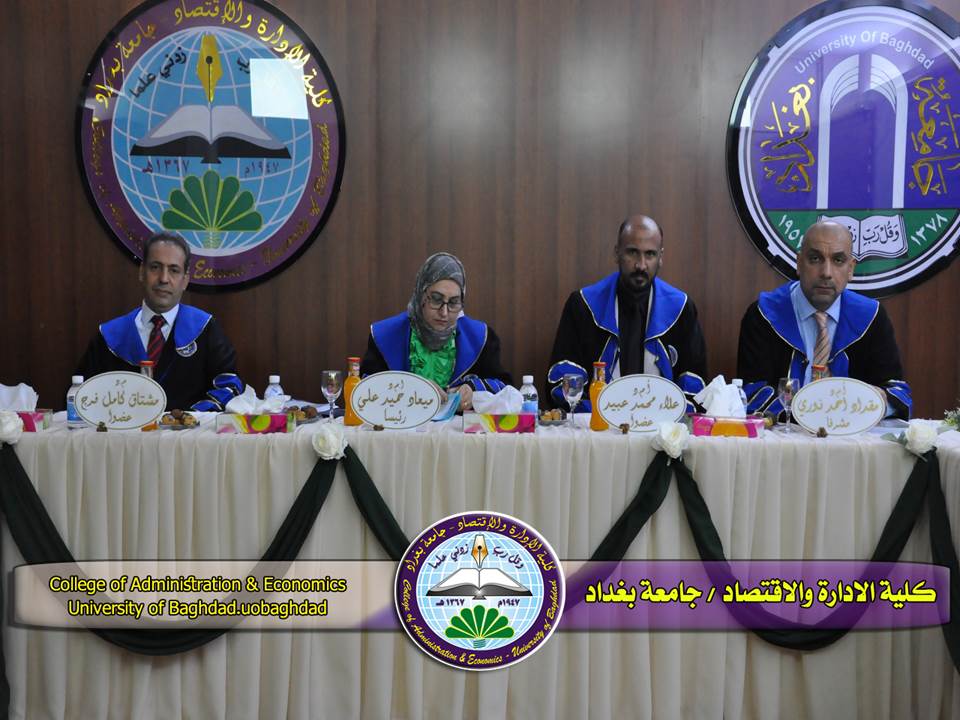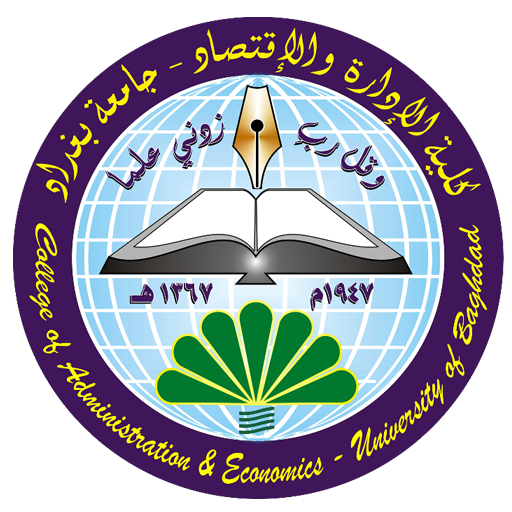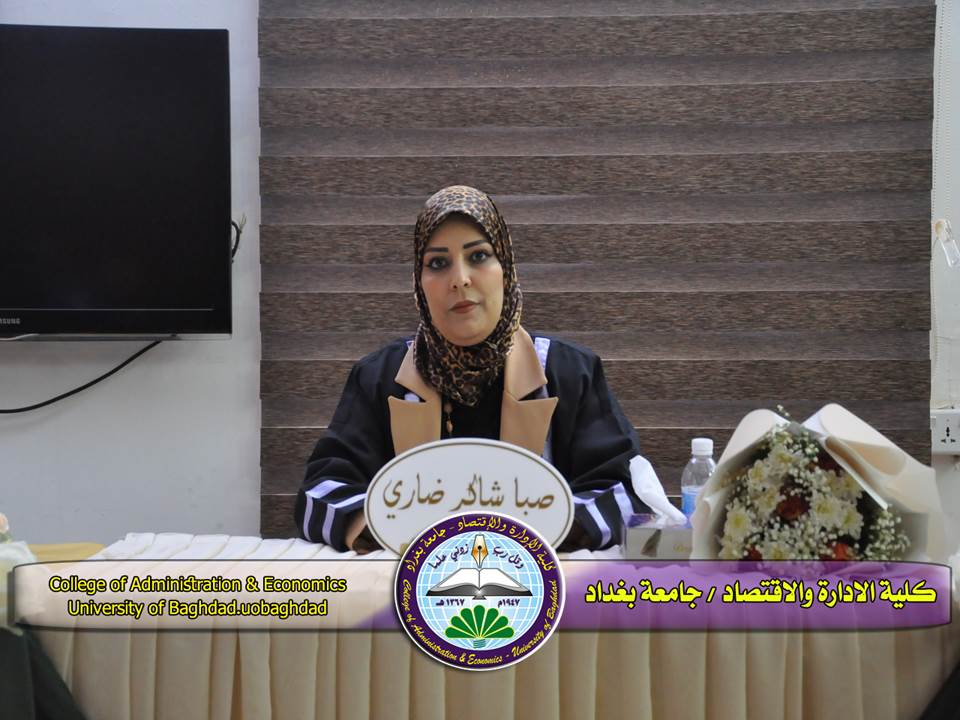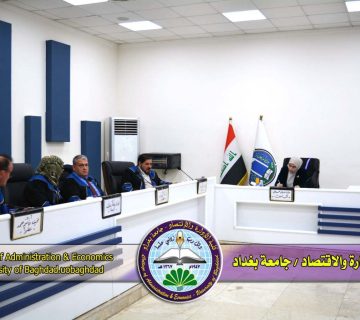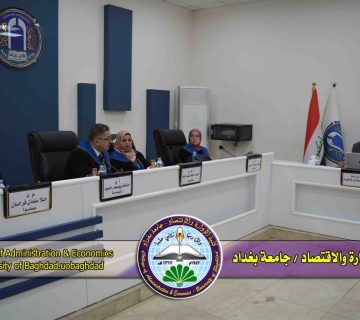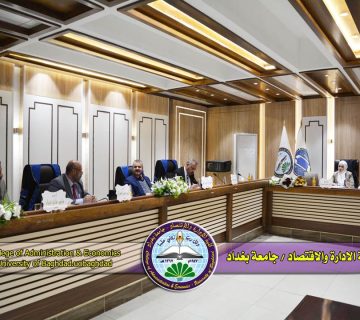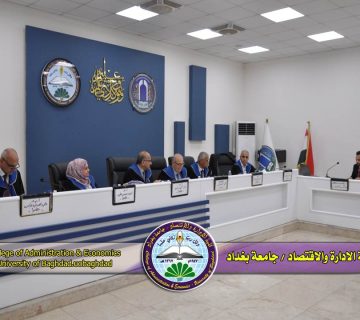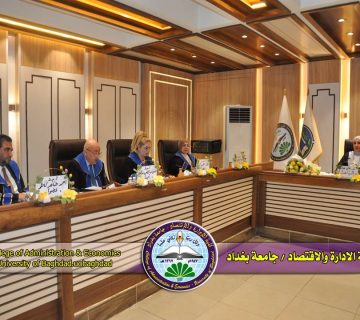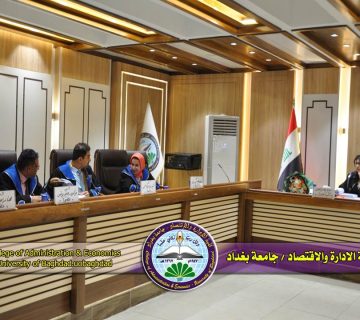The College of Administration and Economics at the University of Baghdad discussed , a master’s thesis in field of accounting by the student (Saba Shaker Dhari) and tagged with (The role of the value stream in measuring the environmental costs to achieve the dimensions of competitive advantage in the Iraqi economic units ) , Under supervision of (Assist. Pro. Dr. Muqdad Ahmed Nouri )
Most economic units suffer from high rates of environmental pollution and a shortage of available resources and energy, which results in a significant increase in production costs, in addition to the lack of economic units to use modern cost methods through which environmental costs and production costs are identified, allocated and measured. Among these methods is the value flow method, which works on tracking production processes, analyzing inputs and outputs, and classifying them into healthy and unhealthy products (waste). The production process and optimal utilization of resources, thus reducing product costs and producing environmentally friendly products, and this leads to improving environmental performance in Iraqi economic units.
The research aims to restructure the economic unit, which is managed through its divisions and management according to the value flow method, calculating the environmental costs according to the value flow, and showing the impact on the dimensions of the competitive advantage represented by the dimension (cost, time, flexibility, quality).
The value flow method works to improve product quality by providing information about negative products to management in order to reduce costs, reduce environmental impacts, and produce environmentally friendly products to preserve the environment. Research, relying on financial and non-financial data included in the reports and records for the year 2021-2022, field coexistence and deliberation of questions with engineers, specialists and workers to benefit from their accumulated experiences, and collecting and analyzing data according to value flow cost accounting in order to improve the production process, and in order to reduce environmental impacts and the amount of waste emissions and optimal utilization of resources and energy.
The researcher concluded that the use of the value flow method leads to tracking inputs to outputs, as well as determining the quantity and cost of negative products, losses and waste that occur during the production process, and excluding non-value-adding activities in order to reduce the cost of the product, ease of focus on production processes, optimal utilization of resources and allocation Analyzing environmental costs and showing them in the financial statements, increasing internal control over operations, and providing the necessary information in a timely manner through financial reports and performance reports that are prepared every week or month to control deviations and find appropriate solutions to advance improvement and improve product quality. As well as working to reduce the waiting time between production stages by merging activities and converting them into production cells, and producing the quantity of products required to be produced with fewer inputs, and this would reduce production costs, reduce resource consumption as well as environmental impacts, and achieve dimensions of competitive advantage
